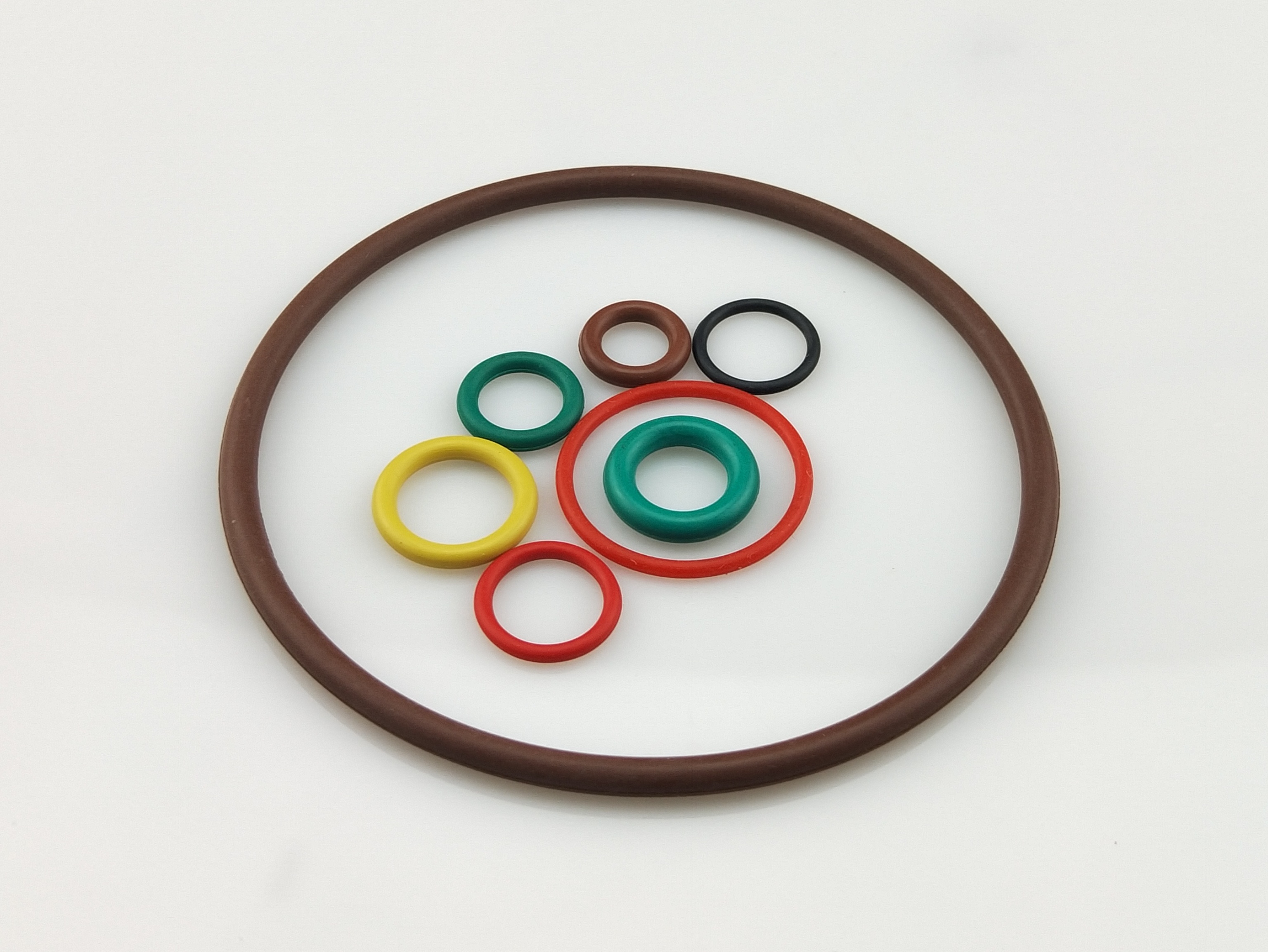Among specialty rubber materials, Fluorosilicone Rubber (FVMQ) stands out for its exceptional stability in extreme chemical environments and broad temperature ranges. This unique synthetic rubber combines the core advantages of silicone rubber and fluorocarbon rubber, making it an indispensable sealing material in aerospace, automotive, and industrial fields. Below are its key characteristics:
Performance: Dual-Advantage Balancing
FVMQ’s primary value lies in integrating two critical traits:
- Chemical Inertness (Fluorocarbon Rubber Legacy): Trifluoropropyl side groups in its backbone significantly enhance resistance to fuels, lubricants, hydraulic fluids, solvents (e.g., hydrocarbons, aromatics), and select acids/alkalis.
- Thermal Stability (Silicone Rubber Legacy): Inherited flexibility maintains physical properties across extreme temperatures.
- Enhanced Attributes: Excellent weather resistance (ozone/UV), moderate mechanical strength, and low compression set.
Temperature Range: Master of Extremes
- Typical Operating Range: –60°C to +175°C
- Short-Term Peak: Up to 200–230°C
- Specialized Formulations: As low as –70°C
Hardness Range (Shore A): Flexible Adaptability
- Standard Range: 40–80 Shore A
- Common Values: 50, 60, 70 Shore A
Color: Industrial Versatility
- Base: Translucent/Off-white
- Customizable: White, black, red, blue, green (heat/UV stability varies).
Core Properties: Performance Summary
| Property | FVMQ Performance | Notes |
|---|---|---|
| Heat Resistance | ★★★★☆ Excellent | Stable ≤175°C; peaks ~230°C |
| Low-Temp Flexibility | ★★★★☆ Excellent | Flexible ≥–60°C |
| Fuel/Oil Resistance | ★★★★☆ Very Good | Superior to silicone; near fluorocarbon |
| Solvent Resistance | ★★★☆☆ Good | Varies by solvent |
| Ozone/UV Resistance | ★★★★☆ Excellent | — |
| Gas Permeability | ★★★★☆ High | Exceeds general rubbers |
| Tensile Strength | ★★★☆☆ Moderate | < Fluorocarbon; > Silicone |
| Compression Set | ★★★☆☆ Good | Better than most silicones |
| Processability | ★★☆☆☆ Challenging | Requires controlled vulcanization |
| Cost | ★★☆☆☆ High | > Silicone/NBR; < Fluorocarbon |
Key Applications: Guardian of Harsh Environments
- Aerospace:
- Engine seals (fuel/oil-resistant)
- Fuel system seals (tanks/pumps/valves)
- Hydraulic seals, door/window gaskets
- Automotive:
- Turbocharger seals, fuel injector O-rings
- Transmission/engine seals, emission control
- Petrochemicals:
- Oil drilling seals, chemical valve/pump seals
- Industrial:
- Machinery seals exposed to oils/solvents
- Medical (Limited):
- Sterilization-resistant seals (biocompatibility verified).
Summary:
FVMQ excels where extreme temperatures meet chemical aggression. It bridges silicone’s thermal range and fluorocarbon’s fluid resistance, delivering reliable dynamic sealing from **–60°C to 175°C**. Despite higher costs and processing challenges, it remains unmatched for dual-threat environments.
Post time: Jul-14-2025

